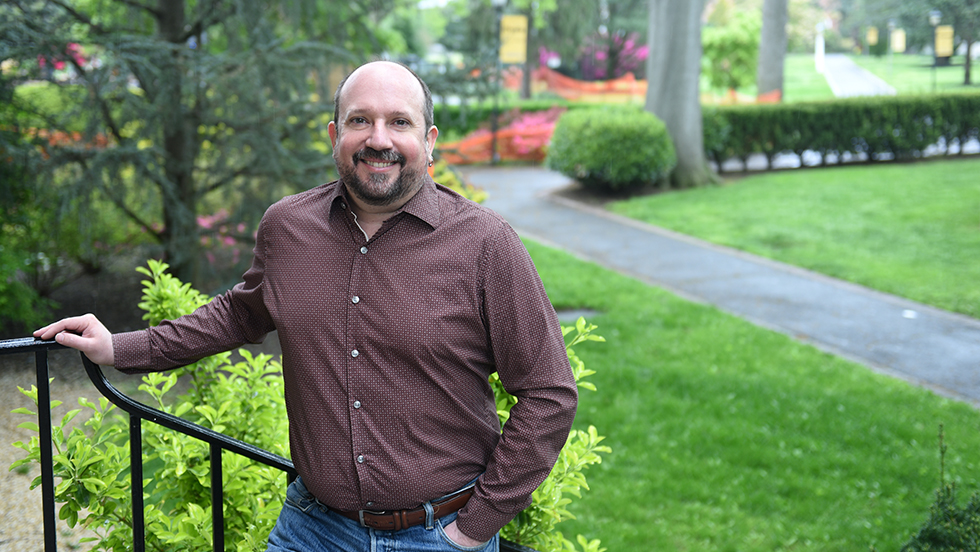
Damian Stanley, PhD, assistant professor of psychology, has received a $388,026 grant from the National Institutes of Health (NIH).
Damian Stanley, PhD, assistant professor of psychology in the Gordon F. Derner School of Psychology, has been awarded a three-year National Institutes of Health grant in the amount of $388,026 for his project, “Identifying social computational phenotypes in mental health,” aimed at filling a gap in data-driven research on how learning about other people’s beliefs, intentions and traits can be impaired in different ways across a range of dimensions of mental health.
Dr. Stanley’s research will use a mix of behavioral and psychological assessments, computational modeling, and neuroimaging (fMRI) to explore how learning about other people is connected to their mental health. The goal of the project is to identify patterns, or social computational phenotypes, associated with distinct dimensions of mental health to inform future research on social-cognitive processes and improve treatment for a broad range of mental health conditions.
“The ability to learn about people and hold a representation of them in our mind is critical for successful navigation of our social environments—to maintain healthy relationships and successful careers,” notes Dr. Stanley. “Specialized neural systems may support these social-cognitive processes, and their impairment is characteristic of many mental health disorders. However, there is a lack of programmatic research on the social-cognitive aspects of mental disorders.”
This project builds on Dr. Stanley’s previous research, conducted in his Social Computational Neuroscience Laboratory (SCoNeLab), which reconstrues theoretical constructs from social psychology within the model-based framework of computational neuroscience. Previous work from Dr. Stanley’s lab on this question include: Deconstructing Theory-of-Mind Impairment in High-Functioning Adults with Autism (Current Biology) and Getting to know you: general and specific neural computations for learning about people (Social Cognitive and Affective Neuroscience). In another line of research, Dr. Stanley has focused on the socioemotional impacts of the COVID-19 pandemic as part of the COVID-Dynamic Project, a multi-institutional research team he co-leads comprised of researchers from Adelphi University, the California Institute of Technology, Chapman University, The City College of New York (CUNY), Rutgers University–New Brunswick and Yale University. The team also published “COVID-Dynamic: A large-scale longitudinal study of socioemotional and behavioral change across the pandemic” in Scientific Data – Nature, providing a window into the psychological, social and emotional impacts of the first year of the COVID-19 pandemic.
“We are proud of Damian’s accomplishment with this award and his continuing contributions to our neuroscience faculty,” said Derner Dean J. Christopher Muran, PhD. “We look forward to the fruits of his further research on social computational neuroscience and what it can bear on our understanding of mental health.”